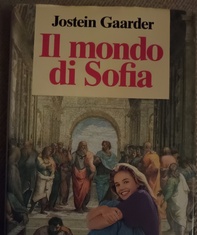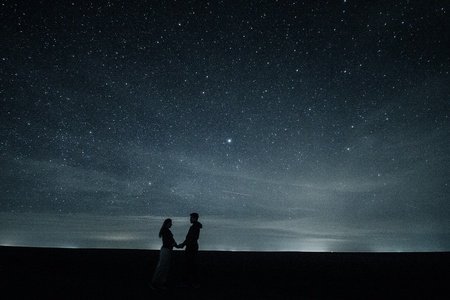
"Sophie's World" by Jostein Gaarder
Last updated: Saturday November 4th, 2023
Report this blog
Introduction
"Sophie's World" is a stunning bildungsroman novel by the Norwegian writer Jostein Gardeer, published in 1991. It's his only internationally famous book. Gardeer writes by the perspective of children to fill the stories with passionate details about the world. After all, children usually wander through the world with curiosity, trying to understand the reasons behind phenomenons. Not an uncommon literature theme, as we can see, for example, in "The Little Prince" by Saint-Exupéry. I've pressed on the nostalgic tone, I know.
When I held it in my hands for the first time, I had nothing to read and I hadn't read anything for quite a long time before. That book had stayed on a shelf for all my lifetime, since it was printed in the 90's. As I began my journey, I noticed how the main character felt familiar. A few chapters and I was already immersed in Gaarder's universe. I wanted to know more about the characters and their stories. I knew that that world would have followed me whenever I went. Especially after sunset, when the sky was blackened by the night. The night is so philosophic.
Now, everytime I see "Sophie's World" on my desk, my memory returns to the blue and quiet atmosphere of January. It's one of those experiences that really shaped my personality.
Philosophy or Reality?
The novel is set in Norway, where Sophie, a fourteen year old girl, lives with her mother and animals. One day, while her father is working in Lebanon during a war, Sophie receives a letter from a stranger, the first in a long series. Through these letters, she soon discovers the existence of a girl, Hilde, who is as old as her, and learns that their birthdays are celebrated the same day. The enigmatic man, called Alberto Knox, poses bizarre questions to Sophie, then, after a while, includes explanations of the points of view of a determinate philosopher, starting by how they would have answered the questions he had sent to her. Sophie tries to search for the man, to meet and talk to him, but in vain. His fascinating stories absorb Sophie's attention, while her mother believes, at least in the beginning, that the girl has fallen in love with a classmate. Sophie lets her believe that, keeping her lessons secret. Meanwhile, her scholastic career slowly improves as she understands more and more about philosophy. Sophie learns that the eyes' perspections are a shadow of the truth, often distant from it.
The mystery won't be over until the end, when we are transported in a voyage through time and space. We ask ourselves where is the border between philosophy and reality. When the plot seems to recompose, the details throw us in a cave of doubts. Maybe philosophy played us her greatest trick?
From Identity to Personality
The first question Sophie tries to answer is "Who are you?". That's the simplest and most complicated question. Even if we change through the years, we're still the babies that once slept in a little bed full of peluches. Or maybe we are different people through the stages of life? Multiple philosophers have argued over the question. We're like the "Ship of Theseus" of Plutarch, that was commemorated and admired even when all its original pieces were changed. For my part, I believe that identity always stays the same: it's identified by our own heart pulsing in our chest since our first second in this world. Personality, however, describes our interiority, so it changes through the years, depeding on our choices, the people we talk and have contact with, the environment in which we live.
Philosophy through the Centuries
When I started reading this book, I knew almost nothing about philosophy and its history. However, reading Alberto Knox's letters, I thought a teacher was explaining to me the complex world of philosophy. The imaginary dialogues were clear, the definitions understandable even by me, even if I weren't aware of how the book would dig deep in the world of philosophy. Sophie learns about rationalism, empirism, determinism and even pantheism.
A universe I could admire. A beautiful sight to behold. Maybe between the stars... As the final chapter says "We are, too, made of stardust".
What I love about philosophy is that it's full of possibilities. It isn't an amount of things. It's subjective. It's poetic.
We're quite vulnerable in front of the immensity of interpretations everything holds.
We want, and yet we can't, escape to our own world.
Travel is imagination. Hilde is a shadow of Sophie. And yet we traveled with her.
This book is a journey. And it helps in Philosophy class, too. But we'll leave that for later.
As Gaarder stated himself,
... the only thing we require to be good philosophers is the faculty of wonder...


I took a philosophy class in college where the professor asked us to read this book, but then forgot to mention the book the rest of the semester (he was quite a scatter-brained philosopher). So I have a copy of the book but only made a dent in reading it. Perhaps I'll pick it back up and give it a read now with your motivating review!
Excellent review! You very clear brought to light what makes this book awesome. Maybe you spoiled to much about the final revealation, but that's definitely important to talk about this point so that's fine.
Congrats for this great blog!